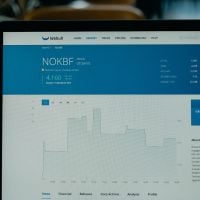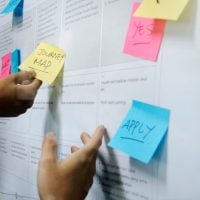Deadline: 1-Apr-23
The Lamu Environment Foundation (LEF) Grant Program is now open for applications to support locally-led conservation projects to improve the environment and support communities.
Through strengthening community capacity, they can play a part in the creation of the next generation of environmental champions and create resilient communities in the face of climate change.
Thematic Areas
- Continuing Education and Sustainable Livelihoods
- Solid Waste Management
- Mangrove Conservation
- Land Regeneration and Restoration
- Marine Conservation
Categories
- Marine Conservation: Building Capacity of BMUS in Pate Island – Part II
- £7000 awarded
- This project is a continuation of the project recently completed by Faza Youth Action Group (FYAG). The previous project Building Capacity of BMUs in Pate Island raised awareness of the need to use legal fishing gear to encourage sustainable fishing and prevent ecosystem destruction and degradation. However, while undertaking that project, FYAG learned there are many issues facing Beach Management Unit (BMU) governance, management, and capacity. Using what they learned, this project aims to tackle some of the core challenges.
- Project Length – 5 Months
- Aims
- This project aims to build the capacity of BMUs in Faza Ward, Pate Island through providing training to communities and BMU boards on the regulations. To do this, FYAG will work with The Katiba Institute to translate the BMU regulations into Swahili. By facilitating this translation, the regulations will be more accessible for community members and BMU leaders leading to greater transparency and accountability.
- In these small fishing communities, fisheries management is key to the prosperity of the entire community. FYAG will hold open forums training sessions in the streets to explain the regulations to all members of the community. It is hoped that once the community and BMU members are better aware of the regulations, they’ll be able to hold their BMUs accountable.
- Objectives: Empowering/Advocating BMUs in ensuring sustainable use and conservation of aquatic resources through proper education and awareness of their capacity and regulations with regards to the use of illegal gears, observance of closed seasons and areas and implementation of bylaws.
- Marine Conservation: Kinyika Co-managed Marine Area
- £2000 awarded
- Lamu Marine Conservation Trust (LAMCOT) are embarking on an exciting project with the support of the local community to create a protected area around Kinyika Rock.
- The projects will begin by strengthening the governing capacity of Beach Management Units (BMUs) and bringing together all stakeholders to work in cohesion for the long-term benefit of their immediate environment. After that, a management team will be identified who will be led by LAMCOT who will support with technical knowledge.
- Due to the ambitious nature of this project, long-term funding and partners will need to be sought to ensure the success of this project. As well as funding, LEF will be providing support in identifying relevant partners and co-funders for this project.
- Marine Conservation: Building Capacity of BMUS in Pate Island
- £6400 awarded
- Faza Youth Action Group (FYAG), are commencing a 5-month project in February 2022 to engage with stakeholders, communities and environmental organisations across the fisheries industry on Pate Island to strengthen governance of BMUs, increase the awareness of sustainable fishing practices and facilitate a fishing gear swap in partnership with Northern Rangelands Trust (NRT).
- FYAG will empower and engage communities and stakeholders to ensure participatory decision-making to achieve the sustainable development of artisanal fishing on Pate while preserving the environmental, social, and cultural integrity of the indigenous community.
- Due to local and international overfishing and environmental degradation, fishery resources are depleting. This has led to artisanal fishermen turning towards more environmentally harmful fishing methods such as fishing in shallow waters, on coral reefs and the use of illegal fishing gears. These methods lead to an increased catch of juvenile fish which causes further issues of depletion in the future.
Outcomes
- Building Capacity of BMUS in Pate Island – Part II:
- BMU regulations translated in Kiswahili with copies distributed to fishermen and all stakeholders in the fishing industry.
- All BMUs involved to have operational environmental units, performing their work as stipulated in the regulations.
- Ensure the executive committee is dominated fishermen who will be the decision makers.
- Enhance the performance of all BMU functions.
- Ensure the composition of the BMU includes all stakeholders equally.
- Ensure BMUs are supported by the government bodies with funding, continued training and knowledge sharing and a continuation of capacity building so they can perform their duties efficiently.
- Ensure equal Inclusion of all stakeholders in the co management of the fisheries resource.
- Support BMUs in training of technology that can help BMUs manage their resources and finances more effectively.
- Improve physical infrastructure and social amenities within the Island such as fish landing stations, dispensaries and sanitation facilities.
- Encourage better engagement with community members to make use of their opinions and indigenous knowledge to create bylaws best suited for the local environment.
- Formulate relevant bylaws where necessary.
- Ensure BMUs are holding regular community meetings to encourage community cohesion and transparency from the BMUs.
- Building Capacity of BMUS in Pate Island:
- A fishing gear swap, where fishermen are provided with alternative fishing gears which are legal, economically viable and environmentally friendly when they trade in illegal gears.
- Through community training, there will be increased awareness of the environmental and economic benefits of using legal fishing gears among fishers and BMUs.
- Entrepreneurship training will encourage fishers to come together as a cooperative allowing them to take control of market prices bringing economic stability.
- The promotion of gender equality as women will be invited to discuss and give input in economic agendas.
- Increased awareness among communities of the importance of environmental conservation through ongoing group discussions and beach clean-ups.
- Capacity building of local BMU’s to
- Improve governance
- Strengthen and introduce local byelaws regarding catch limits, permitted technology, seasonal closures
- Building unity across different areas to ensure wider support for the implementation of new byelaws
- The creation of a community agreed strategic plan to ensure modern, legal fishing methods are adopted while a greater emphasis is placed on marine conservation.
Grant Criteria
- Local non-profit organizations, CBOs and social cooperative enterprises are eligible to apply for funding.
- Non-local groups, already active in the area or experts within that field are also eligible for grants and strategic partnerships, if they prove that through their work, they build capacity within the community.
- LEF does not provide funding to governmental organisations or bodies.
- All applications must demonstrate strong participation and contribution from community stakeholders to ensure projects are focused on building community capacity and interest in environmental conservation. And that throughout the project duration, communities are kept informed and up to date on project progress.
- All applications must demonstrate they are beneficial and appropriate for community use and needs by illustrating they’re inclusive of the interests, rights, roles and responsibilities of all stakeholders, right-holders, and other under-represented groups.
- Applications must focus within LEF’s thematic areas; Continuing Education and Sustainable Livelihoods, Solid Waste Management, Mangrove Conservation, Land Regeneration and Restoration and Marine Conservation.
- All projects must be evidence and science backed to ensure best practices are followed. If necessary, experts and training must be consulted to support the successful outcomes of the project.
- Proposed projects must be well developed to document, justify, implement, monitor, and manage a project.
- There must be a clear monitoring and evaluation structure in place to measure outcomes in the short, medium and long term.
- Projects that demonstrate sustainability after the project period will be prioritised to create long term impact.
- LEF will not approve budgets for projects paying unreasonable per diems to attendees of meetings.
- Projects must be focused in Lamu County – LEF does not fund projects outside of this geographic area.
For more information, visit LEF.









































